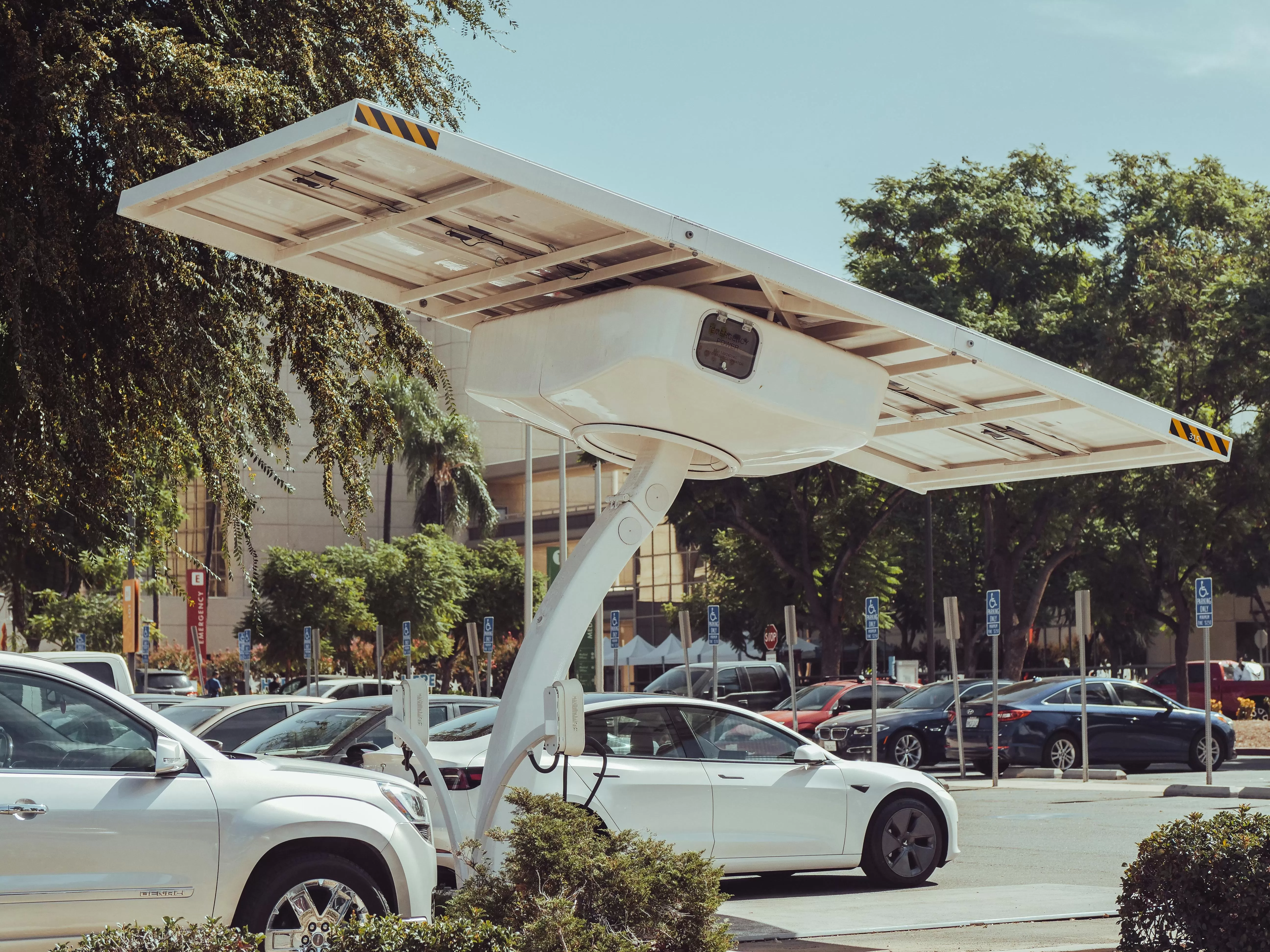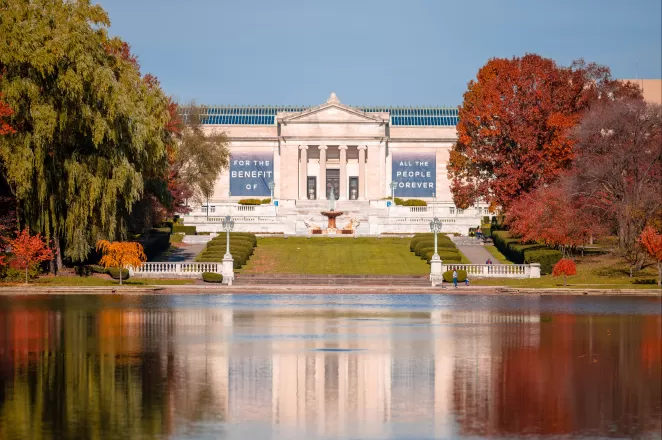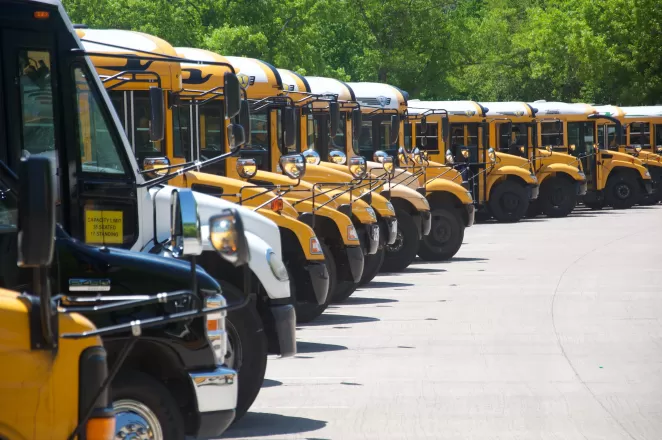Fact Sheet: 100 Days of Local Climate Leadership

During the first 100 days of the Trump administration, cities, states, and businesses have led on climate action in the absence of federal leadership. This fact sheet is a snapshot of ways that local leaders are delivering solutions that improve the lives of Americans by creating abundant clean energy, lowering costs, improving air quality, and driving economic growth.
![]()
Find more state action by following the U.S. Climate Alliance.
- California - Gov. Newsom unveiled a project to leverage satellite data to detect and reduce methane emissions, signed an MOU with 21 Brazilian states to tackle pollution and foster sustainable growth, funded another 1,000 clean electric buses for schools, announced a statewide blueprint for reaching six million heat pumps by 2030, and is working with the state legislature to extend the state’s nation-leading cap-and-trade program.
- Illinois - As part of the state’s landmark Climate and Equitable Jobs Act (CEJA), Gov. Pritzker announced $57 million in awards to help clean energy businesses and the clean energy workforce grow and support historically disadvantaged communities, and announced $20 million for EV freight trucks and charging infrastructure in the greater Chicago area. This month, the Governor signed an MOU with the United Kingdom to foster growth in green technology and manufacturing.
- Maine - Gov. Janet Mills signed bipartisan legislation to strengthen community resilience and preparedness in extreme weather, and reduce risks and costs for homeowners and businesses.
- Massachusetts - Gov. Healey unveiled plans for a historic $8 billion transportation investment, including a $1.4 billion for the Massachusetts Bay Transportation Authority (MBTA) and $110 million for regional transit authorities. She also announced over $3 million in grants to assist local communities in preparing for climate change.
- Minnesota - Gov. Walz announced a 2025 infrastructure plan that includes $144 million for projects that will protect Minnesota’s drinking water, improve transportation, and mitigate flood risks.
- New Mexico - Gov. Michelle Lujan Grisham signed the Community Benefit Fund into law which includes $210 million for climate change mitigation projects in communities across the state.
- New York - Gov. Hochul unveiled $100 million in grants available to expand the use of zero-emission transit vehicles and $80 million for climate resiliency projects, and announced $60 million in NY Green Bank funding to help Revel more than triple its New York City public fast charging network this year.
- North Carolina - Gov. Stein signed five Hurricane Helene recovery executive orders in his first act as governor, and signed his first bill delivering resources to western North Carolina.
- Pennsylvania - Gov. Shapiro announced the Lightning Plan, which aims to streamline energy project approvals, lower utility bills, and accelerate adoption of energy-efficient appliances, and the state launched RISE PA to provide nearly $400 million for projects that reduce climate pollution from industrial sources.

Hundreds of cities across the country are continuing to take action – follow their action with Climate Mayors.
- Albuquerque, NM - Mayor Tim Keller issued a local executive order in response to Trump’s actions that exacerbate climate risks, reaffirming the city’s commitment to a cleaner, more equitable future.
- Atlanta, GA - The city unveiled the first of 56 new electric train sets and plans to redesign more than 100 bus routes to improve local public transportation.
- Boise, ID - The City received a historic donation to expand the city’s geothermal system and ensure residents and nearly 100 buildings downtown have access to renewable power.
- Chicago, IL - Mayor Brandon Johnson introduced the Green Social Housing Ordinance to establish an independent entity to finance affordable, energy-efficient housing in Chicago.
- Lansing, MI - Lansing is strengthening its economy by building on the historic auto industry to create new opportunities for advanced manufacturing in the battery industry. A 2.8-million square-foot facility, which will produce advanced battery cells for automotive and other applications, is set to open in the coming years, bringing 1,700 jobs to Lansing.
- Madison, WI - The city launched the second year of its Building Energy Savings Program, which requires buildings to assess opportunities to improve energy efficiency operations and reduce annual energy costs.
- Over 130 mayors and local leaders sent a letter to Congress calling on them to preserve the clean energy tax credits.

- New findings show that a majority of 1,500 executives from medium and large companies plan to relocate business operations to better access renewable energy sources within the next few years.
- Climate-focused startups saw their valuations and deal sizes through Q1 of 2025 climb, reaching $18.4 B.
- Ceres hosted a Hill Day, where 80 businesses called on federal policymakers to maximize investments in America that strengthen U.S. leadership in building an advanced, clean economy.
- Ahead of Earth Day, Apple announced in its latest Environmental Progress Report that it reduced its overall greenhouse gas emissions by more than 60 percent compared to its 2015 baseline year.
- The Vicksburg, Mississippi school district unveiled eight new electric school buses as part of the district’s commitment to sustainability, student safety, and innovation.
- Two community colleges in Kansas are working with Panasonic – which is opening the world’s largest EV battery factory in De Soto, Kansas – on an apprenticeship program. Following their training, students from the two colleges will be among the first workers at the $ billion manufacturing plant.
- AdventHealth completed its corporate campus solar energy project in Florida, installing a new 3 MW system that will help the company achieve its goal of cutting emissions in half by 2030.
- Kaiser Permanente launched the largest hospital-based renewable energy microgrid system that integrates 2 MW of on-site solar at its Ontario, California, location and 9 MW of battery storage capacity.
- The African Methodist Episcopal Church announced a new program to create microgrids at churches across the state of Georgia to boost community resilience and reduce energy costs.
- Clean energy continues to grow, and for the first time, fossil fuels accounted for less than half of U.S. electricity production in March 2025 as solar, storage, and other clean energy sources helped meet demand.




